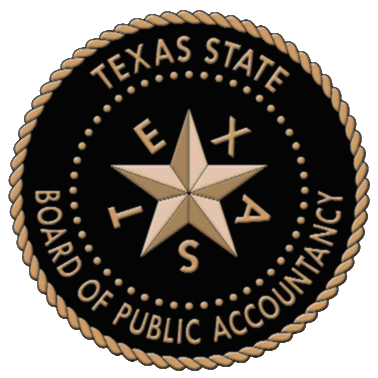Texas State Board of Public Accountancy Rules for Practice Privilege for Certain Out-of-State License Holders |
||||||||||||
Legislation effective September 1, 2007 created a “practice privilege” for CPAs and CPA firms licensed in a substantially equivalent state to temporarily practice in Texas without a Texas license. CPAs that qualify for the “practice privilege” are not required to provide notice to the Texas State Board of Public Accountancy (the "Board") or to pay a fee prior to practicing public accountancy in Texas in person or by mail, telephone or electronic means. |
||||||||||||
Requirements for Out-of-State Individuals(Section 901.462 of the Public Accountancy Act)
|
||||||||||||
If you are an out-of-state practitioner use the following checklist of requirements to determine your eligibility to practice in Texas without notice to the Board. To qualify you must be able to answer “Yes” to all requirements in the Individual Requirements Checklist below. |
||||||||||||
|
||||||||||||
|
||||||||||||
If you meet all the requirements in the Individual Requirements Checklist you may practice public accountancy in Texas without notifying the Board, but you must also be aware of the following conditions of your privilege to practice in Texas:
|
||||||||||||
Requirements for Out-of-State Firms | ||||||||||||
|
The 86th Texas Legislature amended the Texas Public Accountancy Act (the Act) to eliminate the licensing requirement for out-of-state CPA firms performing attestation services for a Texas entity. The amendment is a part of HB 1520 which went into effect on September 1, 2019. Among many other changes, HB 1520 adopts what is commonly referred to nationally as "firm mobility". There is no need to register your firm with the Texas Board since no out-of-state firm is required to hold a Texas license after September 1, 2019. Keep in mind that the Act continues to place conditions on the privilege of practicing without a license. You are subject to that board's rules, regulations, and requirements, including those related to firm ownership and peer review of the state that issued your individual license. An individual who practices under a privilege under this section shall promptly cease offering or rendering professional services in this state if the individual's license in the state of the individual's principal place of business is no longer valid. Please contact the Licensing Division if you have any questions at licensing@tsbpa.texas.gov. |
 |
||||||||
|
||||||||